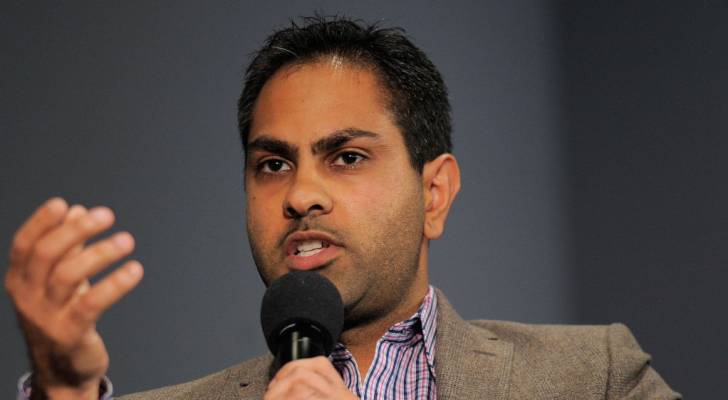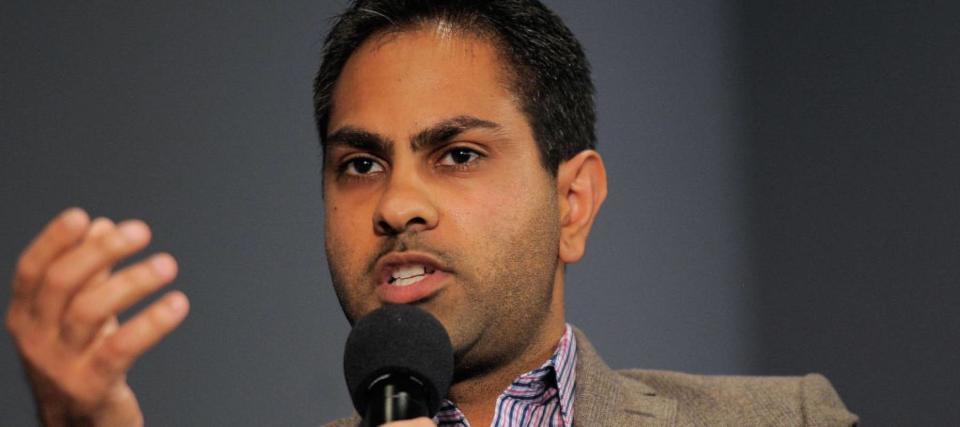Want to see ‘huge changes’ in your bank account? Ramit Sethi says it’ll take ‘big, bold’ actions that very few of us ever actually do. But can you?


Staging an intervention on your personal finances can be scary — but many people need a “big, bold change” to pull them out of debt and set them on a path of financial success.
When it comes to money management, every American has the ability to “make huge changes to their finances with very good results” but only if they’re willing to try, says money personality Ramit Sethi, who uses his platform to teach others about what it means to lead a “rich” life.
Don’t miss
“We’re told to cut back on lattes and buy cheaper apples [but] $3 questions do not change the game,” he told Moneywise. “I want us to focus on $30,000 questions.
“There are two primary areas people overspend on: one is their housing costs and two is their car. Sure, there’s some discretionary spending when it comes to eating out … but for some people in certain financial situations, you could eliminate all takeout and cut your grocery spend by 25% and it really would not make a difference.”
So, what “bold” actions can you take to get a grip on your personal finances?
Downsize your home
Living beyond your means is one of the easiest traps to fall into — but a tricky one to get out of if you have deeply ingrained spending habits and you’ve grown accustomed to living a certain lifestyle.
Sethi gives money advice to people from all walks of life in his “I Will Teach You To Be Rich” podcast. He remembers one couple who had a profound impact on his own financial philosophy.
The couple had two young children and were living in a very expensive neighborhood — a “great place” with bars, restaurants and lots of walkable amenities.
“Finally, they decided to look at their finances — and I say ‘finally’ because most of us never look at our numbers; we simply feel bad about money,” says Sethi. “They realized they were actually spending more than they make every single month.”
So, they decided to make a “big, bold change.”
“That is another thing very few of us do,” according to Sethi. “We nibble at the edges, we try to optimize the price we’re paying for asparagus — none of that matters.”
The couple sold their house and moved to a smaller home in a cheaper area, where they lived for the next 10 years.
“They were able to pay off their debt quickly, they accelerated their payoffs,” says Sethi. “Then they were able to go on offense and start aggressively investing. In a few short years, they have totally changed the way that their finances work and the rich life they are living.”
Sethi claims this is a great example of the impact that prudent financial planning, money management and investing can have on people’s lives.
“Money is not just this vapid thing we talk about,” he says. “Money affects where you live, it affects what kind of camp or activities you can send your children to, it affects in many ways, who you are. Taking big bold actions can get you huge results in a much shorter time than you’d ever think possible.”
Read more: Thanks to Jeff Bezos, you can now use $100 to cash in on prime real estate — without the headache of being a landlord. Here’s how
Up your investment rate
In his book “I Will Teach You to be Rich,” Sethi says you should “spend extravagantly on the things you love, and cut costs mercilessly on the things you don’t.”
The coffee-obsessed money adviser says you could cut back on $5 lattes for the rest of your life — “and by the time you turn 85 years old, if you invested 100% of that money, you may turn it into tens of thousands of dollars” — but that doesn’t mean he thinks you should sacrifice your morning caffeine hit.
That’s not the type of “big, bold change” that he says will have a real impact on your life. Instead, Sethi says you should look at your investment rate, which is the percentage of your income that you’re investing every month.
“You could change your investment rate from 3% to 5%, and you would have more money over the course of your life than you would have in all the lattes and all the restrictions combined,” he argues.
Investing is where “real wealth is created,” according to Sethi, who argues that it doesn’t have to be complex or time-consuming. In fact, he’s all for dumping as much money as possible into target date funds and letting your money do the hard work for you.
If that sounds overwhelming to you, Sethi says it may be a sign you need to better inform yourself.
“So many of us are worried about investing and money,” he says. “And by the time people turn 40, it is their number one worry in life. And yet, most people have never read a single book about money. If something is truly important to you, learn about it.”
Don’t ignore your debt
Sethi says some people just accept being in debt as one of life’s inevitable realities, rather than doing everything possible to get out of the red.
Debt complacency is more dangerous than ever today due to the high interest rate environment. For instance, the average interest rate on credit cards is currently 24.45%, according to LendingTree data — the highest since the firm began tracking rates in 2019. That means it’s very expensive to borrow money and even more expensive if you fail to keep up with your monthly payments.
“I speak to couples or people who have $50,000 to $60,000 of credit card debt, and they’re very unconcerned about it,” says Sethi. “I’m over here hyperventilating, like: ‘Why am I more worried than you are?’ And the answer is that I understand what a 26.99% interest rate means.”
The personal finance personality preaches the philosophy: Where there’s a will, there’s a way. And he doesn’t believe in the “myth” of hiding under a rock or living in a monastery to stop spending and get out of debt.
In a blog post on his website, Sethi writes: “You’d be surprised that many people don’t even have to cut much spending to pay off debt quickly. They just have to stop spending on random items, get conscious about making debt a priority, and set up aggressive automatic transfers to pay off their credit card debt.”
He admits that in some cases, he wants the change more than the debt-stricken individuals he’s advising want it for themselves.
“I can show them: ‘Here’s how we can make some changes. Let’s make some tough decisions. What are you willing to do to be debt free?’” he says. “And in almost all cases, they can do it — at least on paper.”
What to read next
This article provides information only and should not be construed as advice. It is provided without warranty of any kind.





